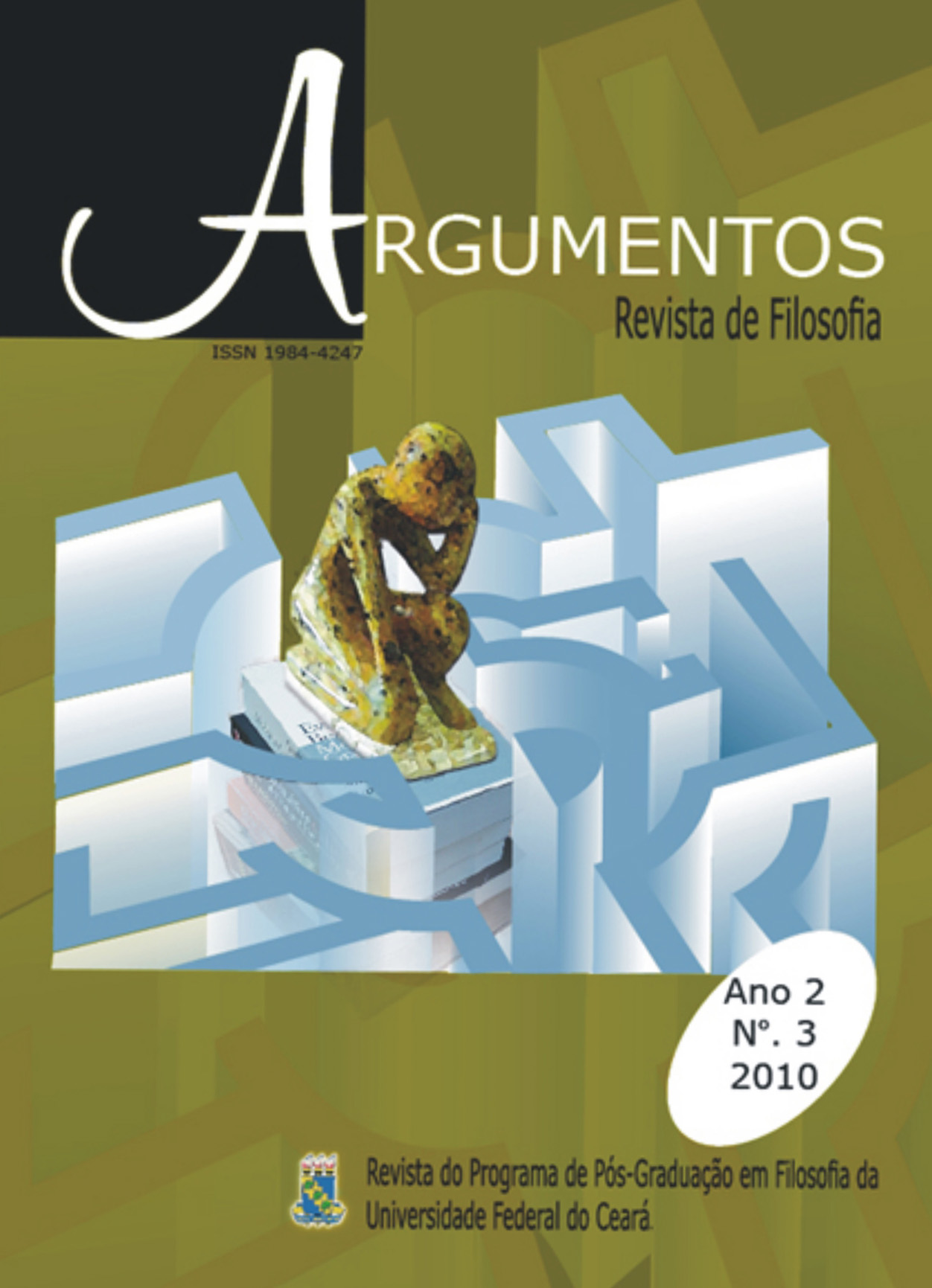Metafísica e moralidade em Schopenhauer e Kant
DOI:
https://doi.org/10.36517/arf.v2i3.18959Palavras-chave:
Coisa-em-si. Liberdade. Determinismo. Kant. Schopenhauer.Resumo
Em Kant, o conceito de coisa-em-si “funciona” como um único argumento para fundamentar a ciência moderna e para deixar espaço para uma vontade livre. Tal conceito, entretanto, foi considerado ilegítimo e as aporias provocadas por ele foram interpretadas como ausência de um fundamento filosófico que o idealismo alemão passou a buscar em uma subjetividade pensada dentro de uma filosofia da imanência. O realismo empírico era mantido justamente pelo conceito de coisa-em-si, cuja dissolução implicaria a perda da dimensão transcendental que tanto Kant, quanto Schopenhauer querem preservar. Esse conceito responde a um duplo interesse de Kant: além de limitar o saber científico à noção de fenômeno, a coisa-em-si deixa espaço para se pensar uma vontade livre, isto é, abre espaço para uma consideração moral do mundo. Ora, quando Schopenhauer explica a noção de vontade como sendo a coisa-em-si (e não mais a matéria), ele se vale do conceito ambíguo para o mesmo objetivo de Kant: abrir espaço para a moralidade. A diferença é o tipo de moralidade que se tenta legitimar: no caso de Kant, a moral judaico-cristã de viés luterano, para a qual a vontade livre é conditio sine qua non. No caso de Schopenhauer, a moralidade hindu-budista, consistindo a liberdade na anulação cármica através da negação da própria vontade.
Downloads
Downloads
Publicado
Edição
Seção
Licença
Autores que publicam nesta revista concordam com os seguintes termos (SOBRE COPYRIGHT E POLÍTICA DE ACESSO LIVRE):
1. Autores mantém OS DIREITOS AUTORAIS concedidos à revista OU Direito de Primeira Publicação, com o trabalho simultaneamente licenciado à Atribuição de Licença Creative Commons (CC BY) que permite o compartilhamento dos trabalhos com reconhecimento de autoria e publicação inicial nesta revista.
2. Autores têm permissão para aceitar contratos, distribuição não-exclusiva da versão do trabalho publicada nesta revista (por exemplo: publicar no repositório institucional ou como um capítulo do livro), com reconhecimento de autoria e publicação inicial nesta revista.
3. Autores têm permissão e são estimulados a publicar e distribuir seu trabalho on-line (por exemplo: em repositórios institucionais ou em sua página pessoal) mesmo durante o processo editorial, haja visto que isso pode aumentar o impacto e citação do trabalho publicado.




.jpg)










._._3.png)
1.jpg)
._._._.png)
